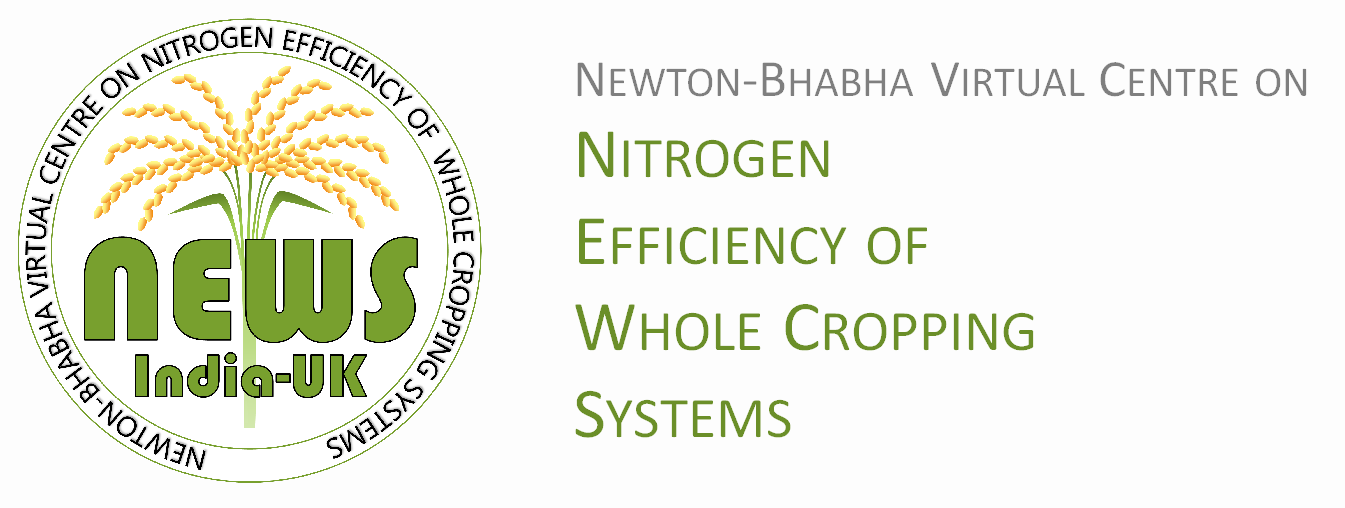Strategic Goals
The overall Strategic Goal of NEWS India-UK is to promote cooperation that demonstrates innovative ways to improve agricultural nitrogen (N) management, allowing increased and more resilient food production while reducing multiple pollution threats. The Centre will strengthen the world-leading position of both countries, including their input to the International Nitrogen Management System (INMS), a global science support process for international N policy being developed by UNEP, INI, the UN Food and Agriculture Organization (FAO) and others.
Five Strategic Objectives contribute to this goal:
-
To establish an internationally leading program of nitrogen use efficiency (NUE) research that links the complementary strengths of the Indian and UK partners.
-
To strengthen existing and build new collaborations between UK and Indian partners, including developing synergy with allied N research beyond the immediate focus.
-
To make innovative links between N research domains, e.g., plant biology, biotechnology, agronomy, biogeochemistry, spatial data analysis, environmental modelling and policy analysis.
-
To build a wider scientific basis for durable cooperation in agricultural N research that extends beyond the project, supported by use of fellowships, post-doctoral training, joint workshops and seminars.
-
To use the research programme as a platform for stakeholder engagement to foster mutual learning and feedback thereby strengthening India-UK cooperation.
Scientific Goals
The overall Scientific Goal is to show how a combination of agronomic and biological improvements can contribute to raising NUE at field, farm and national scales and to demonstrate by how much these improvements will reduce N losses to the environment (including ammonia, NH3; nitric oxide, NO; nitrous oxide, N2O; dinitrogen gas, N2; nitrate, NO3-), thereby contributing to increased resilience of Indian agriculture. To achieve this, the Centre includes a transdisciplinary programme linking complementary science areas and scales.
Five Scientific Objectives contribute to this goal:
-
To characterize and explain plant NUE differences, including establishment of a phenotypic ranking of Indian rice varieties for NUE supported by improved functional understanding of traits, comparing this with what can be achieved by a known genetic modification (GM) for improved plant NUE.
-
To compare the effectiveness of agronomic and biological approaches to improving NUE, and to assess by how much combined approaches maximize overall crop performance.
-
To quantify the relationships between NUE improvement and measured reduction in N losses, considering the different N forms and pathways of N loss.
-
To test how better use of all available N resources can improve Farm NUE in rice-wheat rotations, including from organic manures, atmospheric N deposition and biological N fixation (BNF), and to explore options for overcoming the barriers to better manure recycling.
-
To establish a national agricultural N budget for India, allowing scenarios of improved N management and resilience to be examined, and the associated environmental benefits to be quantified.


